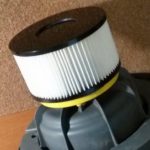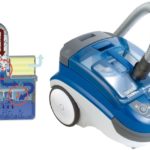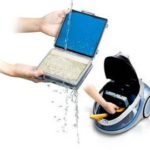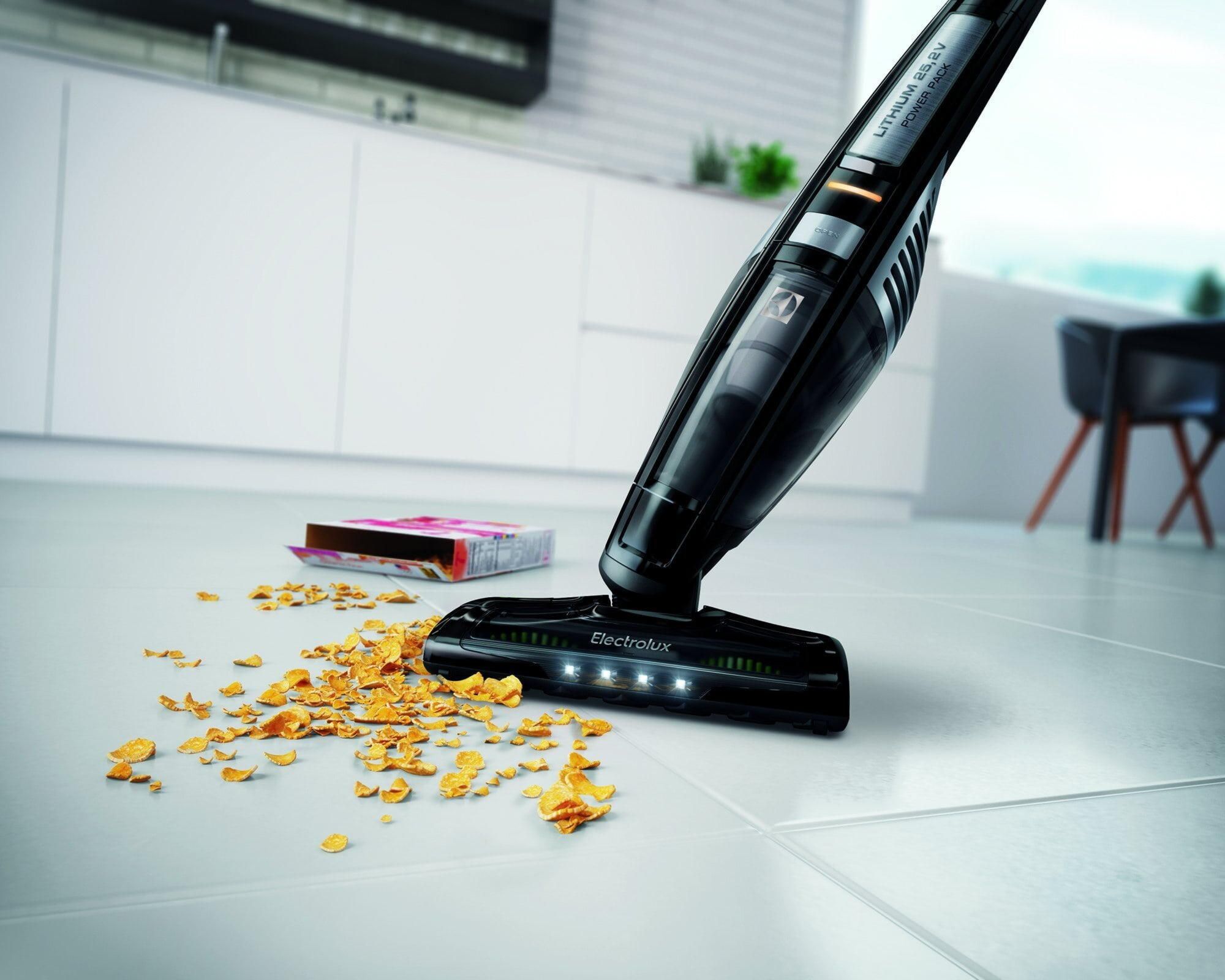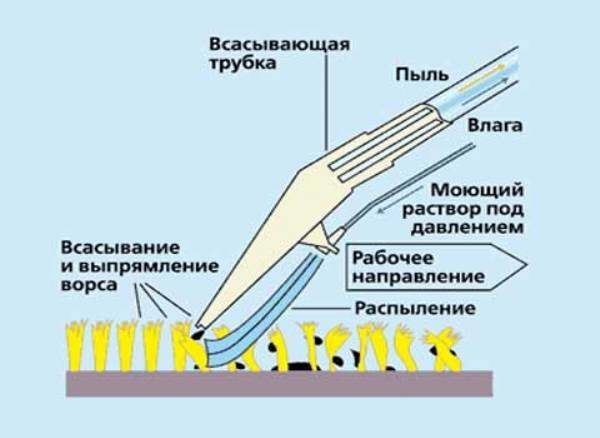What is a HEPA filter in a vacuum cleaner?
What is this, a HEPA filter for a vacuum cleaner? HEPA is an English acronym that stands for High Efficiency Particle Retention. The principle of operation of a HEPA filter follows from its internal structure.
The content of the article
How the HEPA filter works
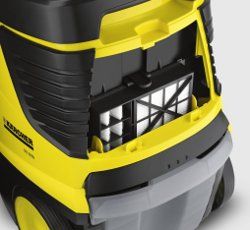 The consumable consists of a fibrous structure of complex shape. The material used is mainly thermoplastic fibers with a diameter ranging from tenths to units of micrometers (µm).
The consumable consists of a fibrous structure of complex shape. The material used is mainly thermoplastic fibers with a diameter ranging from tenths to units of micrometers (µm).
Thanks to this form, filtration occurs in three ways:
- Diffusion - small particles, colliding in the air flow with each other and larger fragments, begin to move in all directions that do not coincide with the movement of the air flow, which increases their likelihood of being retained due to the resulting chaotic or Brownian motion;
- Inertia - large particles with high speed are not able to bend around the fibers that get in the way of their flight, as a result of which a confinement effect occurs;
- Adhesion is the effect of particles passing in close proximity to the fibers sticking to the filter surface.
Device capabilities
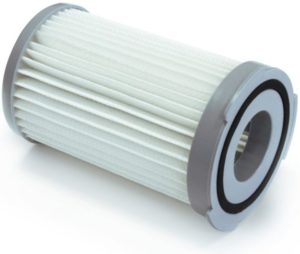 What is a HEPA filter for a vacuum cleaner? HEPA filter systems are located at the end of the air purification cascade, as they are designed to capture the smallest dust particles.
What is a HEPA filter for a vacuum cleaner? HEPA filter systems are located at the end of the air purification cascade, as they are designed to capture the smallest dust particles.
In addition to the basic function of fine air purification, they can fight microorganisms.To do this, the internal cavities are treated with an antibacterial compound. Since bacteria can accumulate and develop inside the material over time, it is necessary to ensure timely replacement of consumable parts.
Main classes
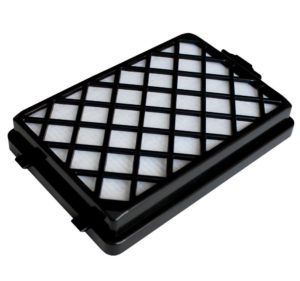 What is a HEPA filter in a vacuum cleaner? Such filters are classified according to international standards according to their cleaning efficiency.
What is a HEPA filter in a vacuum cleaner? Such filters are classified according to international standards according to their cleaning efficiency.
Belonging to a particular class is indicated by a certain index, starting with the number 10, which corresponds to the percentage of filtered particles. The table below provides information on all currently existing classes:
| HEPA filter index | % of particles to be captured |
| 10 | 85 |
| 11 | 95 |
| 12 | 99,5 |
| 13 | 99,95 |
| 14 | 99,995 |
| 15 | 99,9995 |
| 16 | 99,99995 |
| 17 | 99,999995 |
Today, a good level of cleaning is considered if the device has a filter with a class of at least HEPA13.
Scope of use of the filter
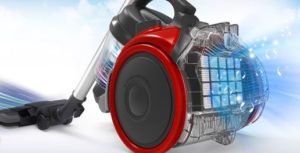 The scope of application of devices equipped with such filters is quite wide. They are used in medical institutions and pharmaceuticals, in enterprises with “clean rooms”, for example, for the production of high-precision electronic equipment, in air filtration systems of hotel complexes, in food industry enterprises, in nuclear power plants to capture radioactive particles.
The scope of application of devices equipped with such filters is quite wide. They are used in medical institutions and pharmaceuticals, in enterprises with “clean rooms”, for example, for the production of high-precision electronic equipment, in air filtration systems of hotel complexes, in food industry enterprises, in nuclear power plants to capture radioactive particles.
Recently, this technology has been actively spreading in everyday life. It is actively and successfully used by manufacturers of household vacuum cleaners.
Life time
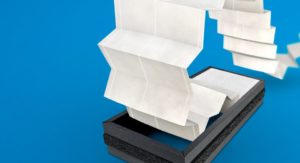 The efficiency of HEPA filters decreases significantly depending on the degree of contamination. If the surface is clean, then dust particles are most actively retained by the fibrous structure.
The efficiency of HEPA filters decreases significantly depending on the degree of contamination. If the surface is clean, then dust particles are most actively retained by the fibrous structure.
When the entire surface is filled with dust, new particles stick to each other, also interlocking within the fibers.When a critical mass of debris reaches a mass, lumps break off, creating an avalanche effect.
Important! Filters must be washed or replaced promptly if they are reusable. A characteristic sign that it is time for maintenance is an increased smell of dust during operation of the device.
On average, replacement is required every 1–3 years. If a large amount of dust is generated in the room, or allergy sufferers often spend time in it, consumables must be replaced much more often.

